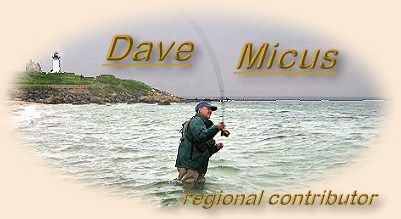|
Querencia is a Spanish term that
means, according to historian Kirkpatrick Sale,
"the deep sense of well-being that comes from
knowing a particular place on Earth; its daily
and seasonal patterns, its fruits and scents,
its soils and birdsongs." I think that those
of us who live in the coastal communities of New
England can easily understand the concept of querencia.
There is something about a sea-faring town that
precludes the thought of ever leaving it - the
smell of the ocean at low tide, the gold on the
marsh in the fall, a snow squall over the water
in winter. All are familiar seasonal patterns
to coastal residents; all re-assure us that we
are where we belong.
No one feels this more than those who seek their
livelihood from the sea. I live on a street with
a public boat ramp at the end that provides easy
access to their clamming beds and moored lobster
boats, and I see them every day as they commute
to and from work. I envy them their commute, at
least when it's not winter, maneuvering their
over-powered Lunds and Alumicrafts through the
channel at dawn, the skiff with a 'bone in her
teeth' as the old whalers used to say, referring
to the white turbulence formed by the bow cutting
through the waves.
Over the course of years I've gotten to know a few
of these fishermen. Our paths cross now and again,
as when I'm launching my kayak to fish for stripers
at the same time they're launching their skiffs. They
probably think I'm foolish with my small boat and
effete fly-fishing ways, but they don't let it show,
and share reports of fish activity.
One of them, Peter, stores his skiff in our yard.
He's a former neighbor who has moved farther away
from the boat ramp, and keeping his boat in our yard
makes it more convenient for him to launch. He
reciprocates by giving us lobsters and crabs throughout
the season, and this works well for us all (but in
his vendetta to rid the ocean of bait stealing crabs,
he sometimes gives us so many that we have to drive
all over town, giving them to friends so they won't
go to waste).
This past year Peter hired both of my sons as sternmen
on his lobster boat. Though only 13 and 15, they are
both big for their ages and they adapted well to this
work of grown men, making my wife and I quite proud.
We were also very impressed with the education they
received, not only about navigation and boat maintenance,
but also economics (supply and demand), biology (lobster
mating and migratory behavior), and the law. Each time
they went lobstering they returned stinking of bait but
with interesting stories about what they found in the
pots, the weather, other boats and fishermen. Peter
shared with them his three pillars of wisdom: don't smoke;
brush your teeth; and don't drink with the wrong crowd.
We should all live by these words.
Peter's dad was a lobsterman, and his grandfather
probably was, too. Peter's dad is retired now, but
I still see him. He frequently drives down to the
end of the street, parks at the boat ramp, and gazes
at the water. I notice when he's not out on the boat,
Peter does the same.
"Just checking to make sure the Atlantic Ocean is
still there," is how he explains it.
That is querencia. ~ Dave
About Dave:
 Dave Micus lives in Ipswich, Massachusetts. He is an
avid striped bass fly fisherman, writer and instructor.
He writes a fly fishing column for the Port City Planet
newspaper of Newburyport, MA (home of Plum Island and Joppa Flats)
and teaches a fly fishing course at Boston University.
Dave Micus lives in Ipswich, Massachusetts. He is an
avid striped bass fly fisherman, writer and instructor.
He writes a fly fishing column for the Port City Planet
newspaper of Newburyport, MA (home of Plum Island and Joppa Flats)
and teaches a fly fishing course at Boston University.
|

 Dave Micus lives in Ipswich, Massachusetts. He is an
avid striped bass fly fisherman, writer and instructor.
He writes a fly fishing column for the Port City Planet
newspaper of Newburyport, MA (home of Plum Island and Joppa Flats)
and teaches a fly fishing course at Boston University.
Dave Micus lives in Ipswich, Massachusetts. He is an
avid striped bass fly fisherman, writer and instructor.
He writes a fly fishing column for the Port City Planet
newspaper of Newburyport, MA (home of Plum Island and Joppa Flats)
and teaches a fly fishing course at Boston University.